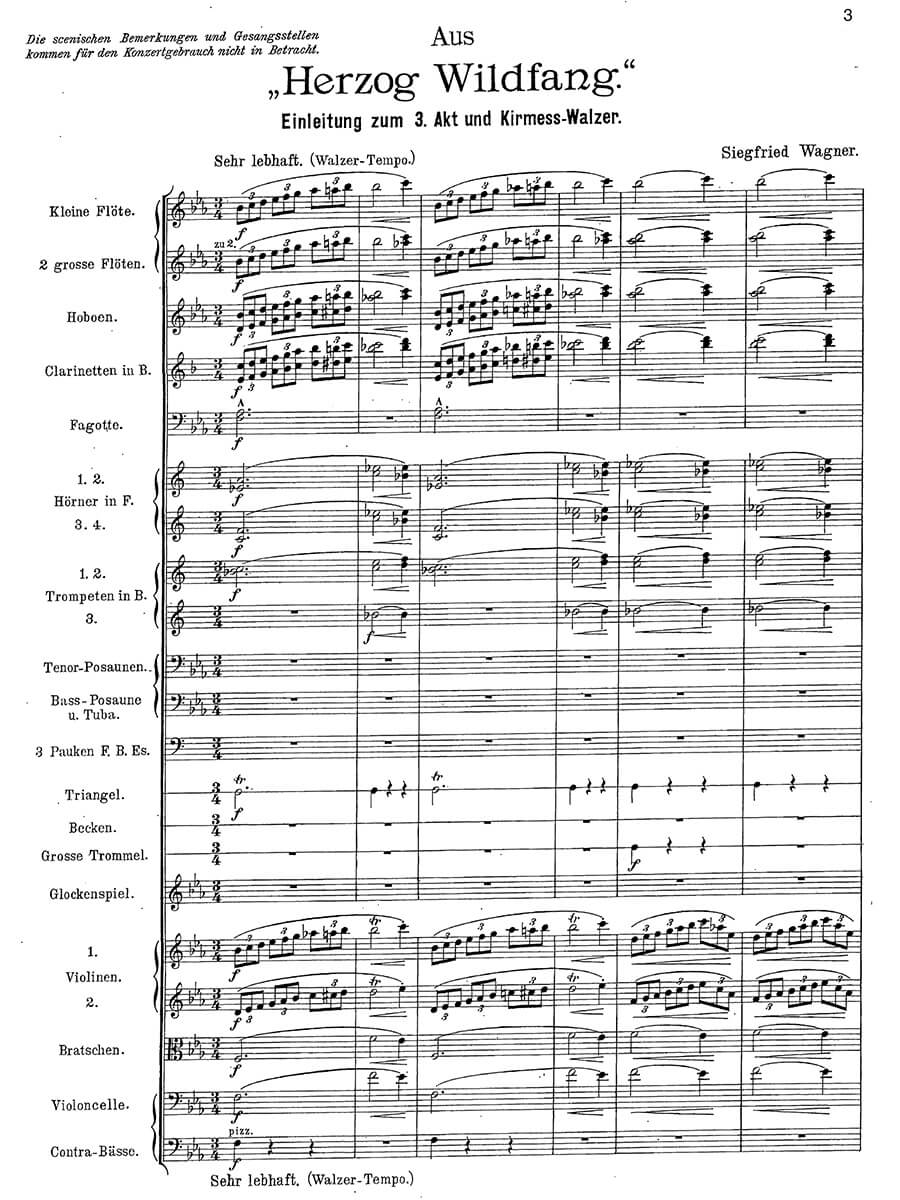Herzog Wildfang, Introduction to Act 3 and Kirmess Waltz
Wagner, Siegfried
21,00 €
Preface
Siegfried Helferich Richard Wagner – Herzog Wildfang: Introduction to Act 3 and Kirmess Waltz
(b. Tribschen 6 June 1869 – d. Bayreuth 4 August 1930)
Preface
It was extremely difficult for the „Master’s son” Siegfried Wagner to live in the shadow of the overpowering father figure Richard. Musically always measured against the work of the “Bayreuth Master”, he approached modernity – not only in his operas but also as director of the Bayreuth Festival – which aroused displeasure among the Wagner fanatics and at the same time was never enough for those who loved progress. In terms of content, his operas break with centuries-old traditions and views, moving musically between Humperdinck and Schreker, late Romanticism and Impressionism, while in his private life the composer was extremely conservative and notorious for his anti-Semitic slogans, which he uttered in vulgar speech. In short, Siegfried Wagner’s life was full of tensions.
Born in Tribschen in 1869, Siegfried Helferich Richard Wagner, called “Fidi”, was the long-awaited heir of his parents Cosima and Richard. Siegfried, however, was a name so unlike the reserved, harmony-loving, only slightly heroic nature of the homosexual master’s son.
Early on, Siegfried Wagner was groomed for his role as festival director. Initially, however, it was architecture that fascinated the young Wagner, although he also had great musical talent, much to the delight of his parents. During a trip to Asia with his early love, the composer Clement Harris, Wagner decided to become a composer as well. As such, like his father, he composed mainly for the stage. In 1899, he scored a brilliant success with his first opera, “Der Bärenhäuter”. Even Gustav Mahler conducted the work, which, however, almost completely disappeared from the stage after only two seasons. The following works were also denied great success, not at last due to the wartime, when critical stage plays in particular could do little to maintain a general good mood. Wagner’s tonal language also simply went out of fashion in the 1920s, although modern tendencies are certainly present in his works. …
Full preface / Komplettes Vorwort > HERE
Score Data
| Edition | Repertoire Explorer |
|---|---|
| Genre | Orchestra |
| Size | 210 x 297 mm |
| Printing | Reprint |
| Pages | 52 |
